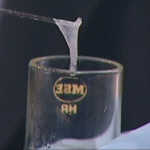Royal Institution Christmas Lectures 2007
Luck, Genes and Stupidity
Ancestors
65 million years ago, the world was a very different place. Dinosaurs ruled the planet and our ancestors were small, furry creatures living in burrows. Things were stable until a meteorite struck the Earth causing massive climate change. The dinosaurs died out, but our ancestors survived; they were lucky. We're lucky too as there have been four or five episodes of mass extinction in Earth's history and every time, our ancestors have survived. Why should it be that our ancestors survived and other animals died.
Survival
If we take a group of people and put them in an extraordinarily difficult situation, some live and some die and its very hard to tease out why this is.
In October 1972, an aeroplane carrying 45 passengers, amongst them a rugby team, was flying over the Andes. The aircraft crashed killing a large number of people. By the following lunchtime there were only 28 left alive. One of them was Roberto Canessa who tells how they had to eat the leather luggage before resorting to the bodies of the dead passengers. They managed to stave off starvation for three and a half months.

DNA
Your intrinsic survival kit is the biological features that might give you the edge of surviving over someone else. Those biological features are the genes you inherited from your parents. Genes determine our characteristics and genes are made of DNA which code our protein molecules.
In a demonstration, each member of the audience is given a post-it note soaked in one of three chemicals. They are told that one smells sweet and pleasant, one smells disgusting and te third smells of nothing at all. Dr Montgomery ask who has which and receives votes for each before revealing that it is a con. Each note is the same. The chemical that has been used is androstenone which is male pheromone, so some of the audience have just confessed to finding the smell of sweaty boys attractive.
Dr Montgomery now compares a sample of his own DNA to that of an onion and finds they are very much alike. That's because small differences in DNA make an enormous difference to the way we are. A topaz puffer fish has the same 20,000 genes that we have. Differences in the genes that may not be substantial make a big difference to the end result.

Four Sisters
You can tell how important these small changes in DNA are by looking at four sisters in the audience. While they are obviously sisters they are different, yet they share 99.9% of their DNA.
Genes also influence the results of the smell test. We each have a gene that makes a protein that detects androstenone. A tiny change in that gene changes how we perceive the smell.
Environment also plays a big part in the way we are. Practice or repeated exercise activates genes to grow muscle and even bones changing the structure of the skeleton.
If these differences change the way we look, can they also make a difference to our chances of survival? Perhaps surviving a knife wound!
Billy Wild is a knife-thrower and he demonstrates his skill. Dr Montgomery asks for a volunteer to stand in front of the flying knives. Only some people volunteer to take the risk. Taking risks threatens your survival. Boys take more risks than girls. Some of this tendency is down to your upbringing but, 30-50% of it is down to your genes.
It can also be genes that affect how fat you are. 75% of the factors affecting fatness are genetic. Fat insulates the body and can help you survive the cold.
Finally, five volunteers are blind-folded and asked to wear headphones. They have been instructed to place their hand an arm in iced-water at 4°C for as long as they can. This is an experiment about pain. The results range from 16 to 51 seconds. Again, genes influence the result. Some people feel pain more readily than others, they have a gene that creates morphine in the brain allowing a higher pain threshold.
